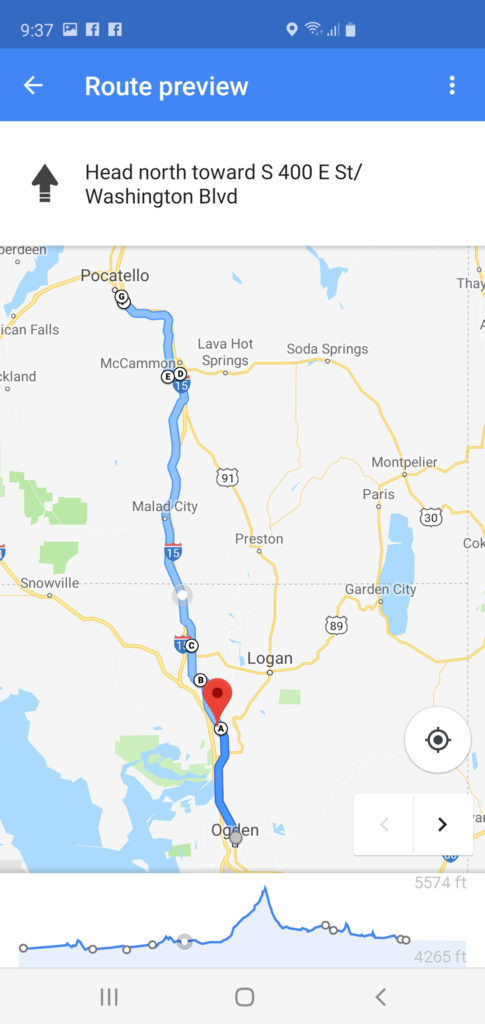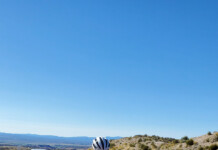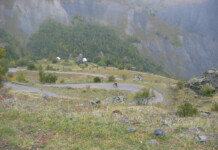I am an Idaho boy at heart, having been born and raised in Tyhee, a small farming community sandwiched between Pocatello and the Fort Hall Indian Reservation. So when my brother, Nick, came up with the idea to do a one day ride to Pocatello, I was all in.
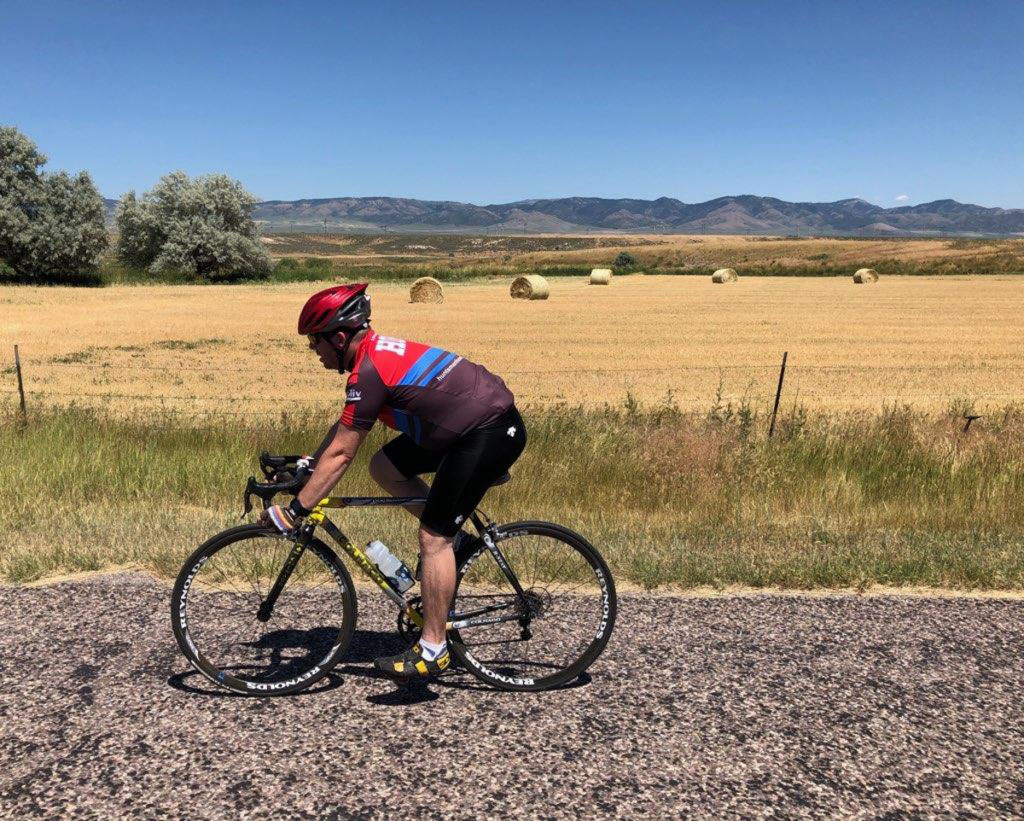
Nick and I have a small group of family and friends we ride with, affectionately known as the “Studs and Former Studs”, a team name we adopted for the LOTOJA. “Studs” is for the young, strong guys, and “Former Studs” is for the guys like Nick and me who are way past our prime, if we ever had one. In truth, maybe we should use the term, “Never Were Studs”. And on the topic of our team name, now that we have women participating in our group, we should probably include the term, “Studettes”. Enough of the name stuff.
Anyway, Nick came up with this idea, and several of our team decided to do this as a training ride for the LOTOJA. So, we scoped out a route from north Ogden and on August 6, 2016, after begging some spouses to provide support, we held what turned out to be our 1st Annual Potato Run. Why “Potato”? Because Idaho is famous for its potatoes. Duh. And why “Run” instead of “Ride”? Good question. Probably because whoever came up with the name was euphemistically thinking of “making a run to Idaho for some potatoes”. Anyway, the name has stuck, and I think we all like it.
So on this last July 20th, seven of us set out around 6:30 a.m. We made our way through Pleasant View and on to Highway 89. As we rode past the cemetery in Willard, I turned to my son, Kimball, and said, “Put your hand over your heart. We are riding past your great, great, great grandfather’s grave.” George Welton Ward, a convert to the LDS church who emigrated from England, was sent by Brigham Young to settle the Willard area. So, a little piece of heritage.
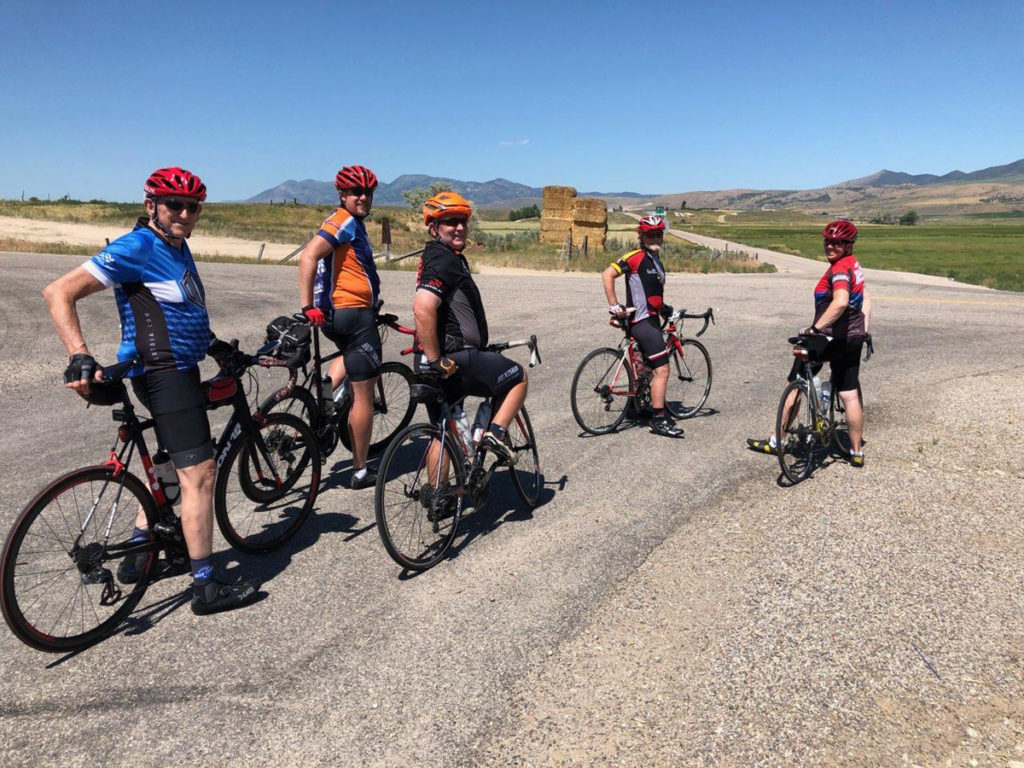
From there, we rode through Brigham City and Honeyville, and on to Deweyville, a really nice stretch of rural beauty, where we turned and made our way to Tremonton and on to Riverside for our first stop. After fueling up, we rode on to Plymouth, crossed under 1-15 to the west side frontage road and continued north. Just before crossing the border into Idaho, we passed the small community of Portage. Hand over heart again, as Portage is where my grandmother, Marinda Irene John, was born and raised. A second little piece of heritage.
As we crossed the Utah/Idaho border, Nick celebrated our heritage by breaking out into the Idaho state song, “And here we have Idaho, winning her way to fame. . . .” I joined in, but needless to say it’s hard to carry a very good tune with labored breath from pedaling our bikes. Our riding partners just smiled.
Just past the border is the small community of Woodruff. I again told my son to put his hand over his heart as we passed the home where my grandfather, Richard Alvin Ward, was born and raised. My great grandfather, George Ward, son to George Welton Ward, had moved from Willard to the Malad Valley. A third piece of our heritage.
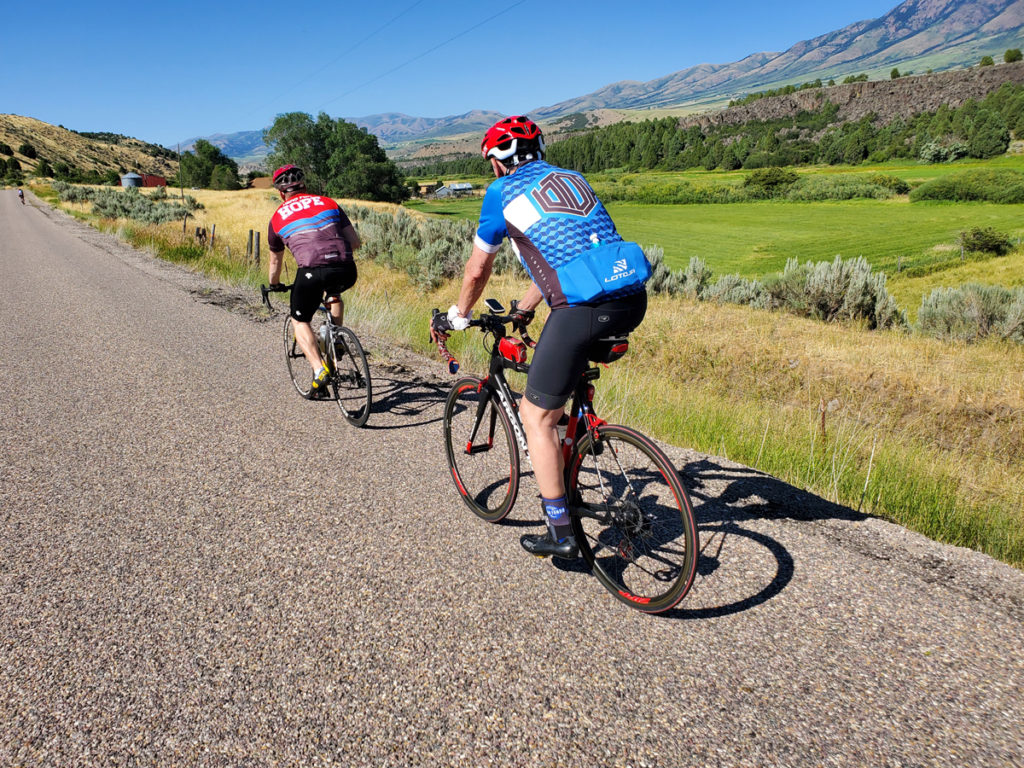
As an aside, and another piece of our family heritage, my grandfather, then a young man, drove a horse and wagon from Woodruff to Portage to pick up my grandmother, after which they continued on to Logan where they were married in the LDS temple. Family lore has it that when he picked her up, she was crying. He offered to call it off, but she declined, and here I am two generations later. As a further aside, Richard and Irene moved to Sterling, Idaho and later to Tyhee. And that is how Nick and I ended up being raised there.
Back to the ride. After Woodruff, we came to Malad where we had our second main stop. I have to confess, I had been having some intestinal issues since early on, and made a quick dash to a gas station to use the restroom facilities. After our feed stop, I had to make another quick dash to the gas station. Thankfully, my intestines then settled down for the rest of the day. Despite those issues, the legs were feeling really good, so it was kind of that odd situation of not feeling so well in one way, while my legs were going well.
From Malad, it was on up to Devil Creek Reservoir and then a scenic climb from there to the top of the Malad Summit. At that point, we got our only real downhill, about a one mile stretch of tuck and cruise. At the bottom of that hill, we swung to the west side of I-15 again and then angled across the valley to our final feed stop in Arimo.
Up to this point, we had mostly ridden through open farmland surrounded and divided by large stretches of mostly sagebrush. But for a southern Idaho boy, that is almost like riding through the promised land. The smell of sagebrush and alfalfa, the songs of meadow larks, the sound of sprinkler pipe in the fields and the vast stretches of semi-arid country mixed with large fields of potatoes, alfalfa, wheat, sugar beets and various other crops brought forth the sweet memories of my youth, and tender emotions of growing up among good people in this semi-arid yet fertile countryside.
More was yet to come, though. From Arimo, we swung back to the west side of the valley, crossing the Portneuf River and hooking up with South Marsh Creek Drive. This little used road, and little known except for the locals, meanders alongside Marsh Creek which flows alongside a black wall of ancient lava flows with rising mountains further behind. Between the road and creek is lush bottom land with grazing horses and livestock. Marsh Creek then flows into the Portneuf River, and we turned onto to the bordering West Portneuf Road, following this lush and idyllic scene which continued to unfold to us as our tiring legs pushed our bikes the final miles to the finish at Ross Park.
This year’s annual Potato Run was a great ride, despite the lack of a good south wind to push us along. It was also a day of heritage, reflecting on the progression of my ancestors as the generations moved northward along this route to eventually settle in Tyhee. And it has been a day to enjoy the southeastern Idaho beauty which reminds me that my heart remains that of a boy who had the good fortune to grow up in this corner of Idaho.
